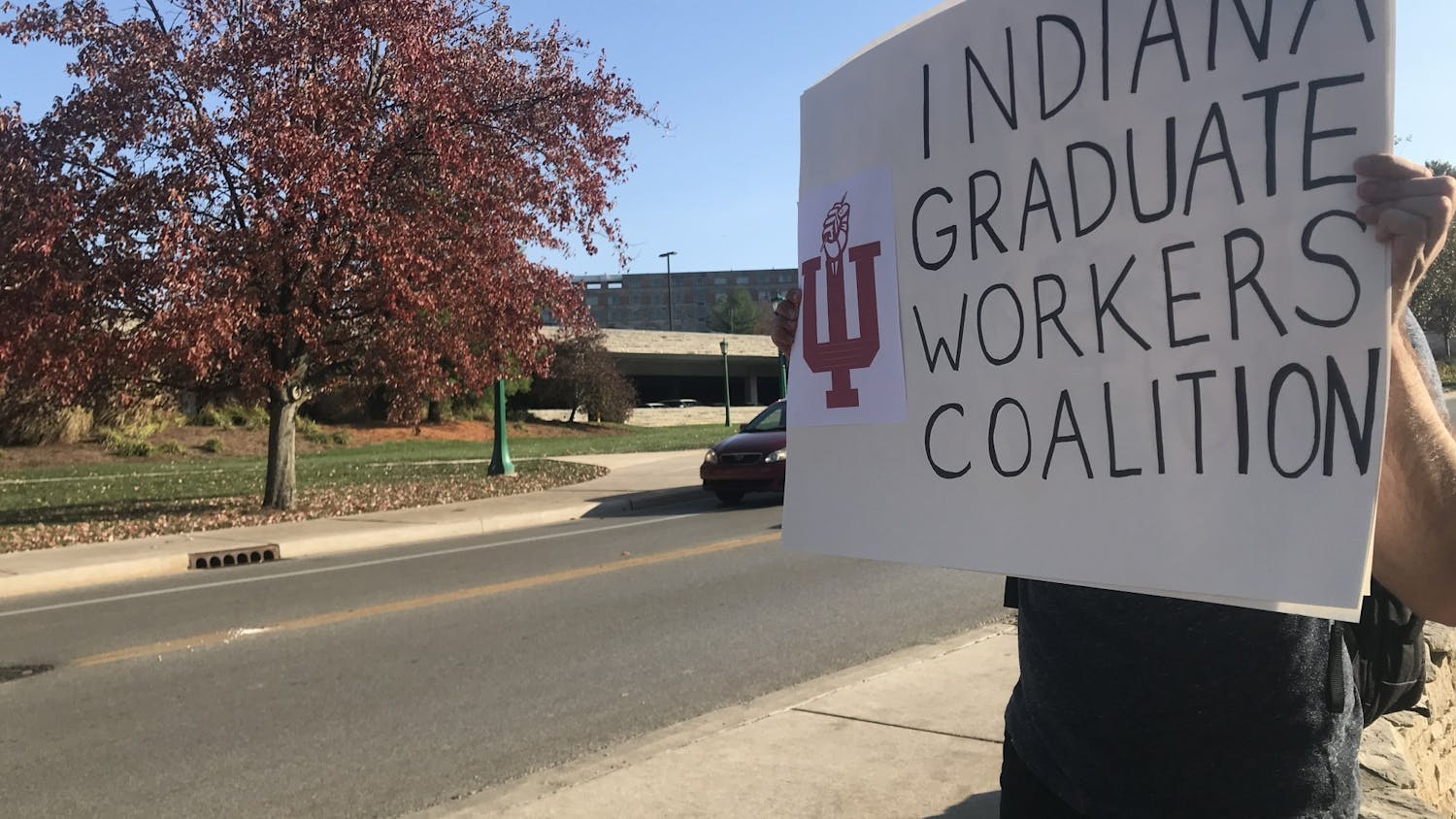With IU Student Association presidential candidates in the final throes of their campaigns, perhaps only minor differences set these candidates apart.\nAnd history shows it might be hard to imagine many candidates – at least in recent history – who drastically differ from this year’s group of three. \nDespite female students consistently outnumbering men on campus, only a handful of women throughout IUSA’s history have landed the top leadership position. In addition, few minorities have been president. \nThese trends, coupled with the fact that all three candidates this year have conservative political ties and admittedly have minimal differences among their platforms, leave an open question for voters: How can any one of these candidates represent varying interests on campus? \nStill, candidates work to separate themselves from the pack, citing differences – however small – to demonstrate why their voice can speak for all students. \nBig Red ticket candidate Luke Fields said he doesn’t fit the “mold” because he studied overseas, lived on campus for three years and is a student in the College of Arts and Sciences and the Kelley School of Business. INdiana ticket presidential candidate and law student David White said he hopes for a rally of graduate student support. Graduate student voter turnout for the elections this week could be a decisive factor in selecting the next leader, candidates have said. \nBut with about 20 percent voter turnout in 2006 and uncontested elections last year, there might be more to the situation than history. \n“I think the majority of students don’t even know what IUSA is,” Kirkwood ticket candidate Joe Weis said. \nSome students agree. \n“It’s probably because they don’t know,” said junior Amanda Nurse to explain why more women, minority students and those with varying sexual orientations don’t run for the IUSA presidency. \nNurse, part of the Multi-Cultural Greek Council, said there probably wouldn’t be the same “mold” of people running every year if more people knew about IUSA. If more organizations knew about it, including her organization, then more groups would encourage candidates to run, she said. \n“It’s a lack of information,” she said. “Lack of communications between groups.”\nNurse said if IUSA is looking for diversity, they already know where to find it. \nIt’s a matter of who the candidates reach out to in determining who votes, Weis said. He said it’s hard to get to talk to all students, but that all students need to have a voice and get involved. Weis called for increased communication between the student body and IUSA. \n“We are in a different period,” senior De’Ondray Pope said. Pope, a black student who said he is involved in many ways throughout the campus, said the atmosphere has changed since he first started at IU. Minority groups aren’t as involved in “majority” groups as they once were, he said.\nPope blames this situation on apathy. Individuals and minority students have grown complacent in some cases, he said, but need to start getting involved. \n“I was the only minority individual represented there,” Pope said of his experience on the Kirkwood ticket his freshman year. \nPope recognized that “majority” groups generally represent IUSA, but added the current campaigns have at least planned to communicate with minority organizations such as the Black Student Union. \n“They need to go ahead and vote,” Pope said of all students. He said that if a student doesn’t vote, he or she has no right to complain about things on campus. \nWhite said there are two types of diversity. One is experience on campus and the other is “culturally, social diversity,” and it’s not easy to find someone who represents both. \n“It’s hard to find enough diverse people who have interest in the IUSA,” White said. \nWeis said students are apathetic except when it comes to issues such as the basketball program. \n“What’s going to make the administration take notice if students don’t care or show interest?” Weis said. \nAll three of the candidates said they believed that their tickets speak for all students. Women hold executive positions on each of the campaigns. Also, candidates have said their congresses include students with diverse interests from across the Bloomington campus. \nFields said he believes the Big Red ticket largely represents many cultural groups. He said he has members from groups such as the Helen G. Hillel Center’s student government and the Muslim Student Union. \n“I think we’ve put together a congress that absolutely represents the totality of IU,” he said. \nWhile Fields said he wasn’t trying to fill a quota, he did draw students with different backgrounds to his ticket. He said he has found students of every background who want to do what is best for IU. \nFields said he fears minorities could feel underrepresented. His goal is to ensure that everyone has a voice, he said. \nCandidates respond that qualifying factors such as experience have prepared them well for the position. In the case of candidate Joe Weis, factors such as experience – not race or gender – determined his nomination, he said. \nThough voter turnout might be an accurate indication of student response to weeks of campaigning by the three parties, how candidates respond to calls for inclusion and increased activism could determine the success of their leadership. \nSpecial projects editor Brian Spegele contributed to this report.
Similar views: IUSA history repeats
Get stories like this in your inbox
Subscribe





